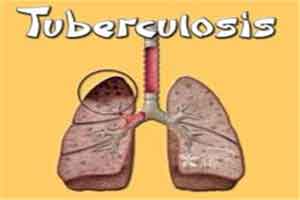- Home
- Medical news & Guidelines
- Anesthesiology
- Cardiology and CTVS
- Critical Care
- Dentistry
- Dermatology
- Diabetes and Endocrinology
- ENT
- Gastroenterology
- Medicine
- Nephrology
- Neurology
- Obstretics-Gynaecology
- Oncology
- Ophthalmology
- Orthopaedics
- Pediatrics-Neonatology
- Psychiatry
- Pulmonology
- Radiology
- Surgery
- Urology
- Laboratory Medicine
- Diet
- Nursing
- Paramedical
- Physiotherapy
- Health news
- Fact Check
- Bone Health Fact Check
- Brain Health Fact Check
- Cancer Related Fact Check
- Child Care Fact Check
- Dental and oral health fact check
- Diabetes and metabolic health fact check
- Diet and Nutrition Fact Check
- Eye and ENT Care Fact Check
- Fitness fact check
- Gut health fact check
- Heart health fact check
- Kidney health fact check
- Medical education fact check
- Men's health fact check
- Respiratory fact check
- Skin and hair care fact check
- Vaccine and Immunization fact check
- Women's health fact check
- AYUSH
- State News
- Andaman and Nicobar Islands
- Andhra Pradesh
- Arunachal Pradesh
- Assam
- Bihar
- Chandigarh
- Chattisgarh
- Dadra and Nagar Haveli
- Daman and Diu
- Delhi
- Goa
- Gujarat
- Haryana
- Himachal Pradesh
- Jammu & Kashmir
- Jharkhand
- Karnataka
- Kerala
- Ladakh
- Lakshadweep
- Madhya Pradesh
- Maharashtra
- Manipur
- Meghalaya
- Mizoram
- Nagaland
- Odisha
- Puducherry
- Punjab
- Rajasthan
- Sikkim
- Tamil Nadu
- Telangana
- Tripura
- Uttar Pradesh
- Uttrakhand
- West Bengal
- Medical Education
- Industry
Govt to launch 15 day campaign to trace TB cases

The government will launch a 15-day campaign to trace tuberculosis cases on the lines of its polio drive, a top official announced at the launch of the India TB Research and Development Corporation (ITRDC).
"We will be going on a campaign mode from January 1 to January 15, 2017 to do active case finding (of TB). We will be identifying high risk areas and seek the help of various stakeholders. Initially, this will be only for 15 days but after 6-7 months, we can have it on a larger scale," Sunil Khaparde, Deputy Director General (TB) of the Health Ministry, said.
ITRDC is a flagship initiative to fight tuberculosis on mission mode with the aim to develop new tools -- drugs, diagnostics and vaccines -- which will help lower the incidences of TB as well as fatalities due to it.
ITRDC is a forum of multiple stakeholders from the government, private, patient groups, civil society and the industry to fight tuberculosis.
Explaining why ITRDC has been founded, Director General of Indian Council of Medical Research (ICMR) Soumya Swaminathan said, "PM has spoken about TB being a national priority and that we need to do something about it on an emergency basis.
"The research consortium will use research to develop new tools to help the country achieve its goals of reducing the TB burden. The PMO would like us to accelerate the rate at which we are going to do this.
"Globally, as per End TB targets, by 2030, we have to reduce incidences of TB by 95 per cent and of mortality by 90 per cent as well as catastrophic expenditure on TB. These are the three goals," Swaminathan said.
"And, the Ministry of Health and Family Welfare has been given the challenge of reaching this by 2025. So, we really have to accelerate the rate at which the TB incidences and deaths need to drop," she said.
The first International Scientific Advisory Group (ISAG) meeting was convened on November 9 and 10 here. It brought together eminent international and national TB experts. The ISAG consists of six international experts and three experts from India.
Dr Barry Bloom, Distinguished Service Professor, Harvard University, and Chairperson of ITRDC, laid emphasis on the need to tackle TB on a war-footing.
"Deaths due to TB have exceeded deaths that are caused by
HIV and malaria. The burden of TB in India is enormous and there is a frightening problem of emerging drug resistance.
"We must explore how we can develop research efforts to make the biggest impact on the lives of the poor people across the globe. But it is not just the poor people, the major risk factor of TB is breathing. So, this is a programme designed to create knowledge and new intervention that will protect the lives of everyone," Bloom said.
The ultimate thrust of this grouping is to develop a vaccine. India is likely to start the trial for a TB vaccine next year.
"It is likely that we will start a vaccine trial with a new recombinant BCG next year," the ICMR DG said.
India is also looking at carrying out clinical trials of three newly developed drugs that are in use worldwide in order to improve cure rates for drug resistant TB.
"Bedaquiline, Delamanid and Pretomanid are at various stages of development but they are in use across the world. Our aim is to use these drugs in India in combination and to improve the management and cure rates of MDR-TB (multi-drug-resistant TB) and XDR-TB (extensively drug-resistant TB) in clinical trials.
"Initially, it has to be done in clinical trials. If found effective then it can be very rapidly scaled up," Swaminathan said.
Next Story


